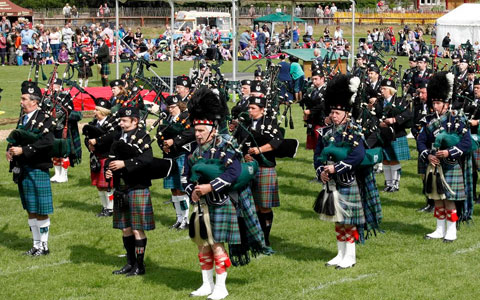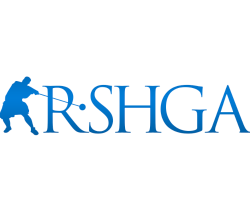We use cookies from third party services for marketing activities and to offer you a better experience. Read about how we use cookies and how you can control them by clicking "Privacy Preferences".
Scottish Highland Games
Scotland has a long tradition and history of Highland Games where Clans would compete against each other in sporting events. Early Celts viewed such events as war games where their strongest and bravest soldiers would win the games.
Some say that Highland Games originated as a clan chieftain's way of choosing the best bodyguards and the fittest fighters. Not all the chief's requirements were warlike - musicians and dancers were important for the prestige of his household. Choosing staff and supporters was done by holding competitions - good runners for couriers, strong men for defence and a range of entertainers to amuse them during the winter evenings.
Many events at today's Highland Games still use items which would have been part of everyday life in the Highlands of old eg. round stones from river beds probably provided the original shot-putts while a Scots pine trunk shorn of its branches is still the caber as tossed today
Many of these traditions can still be seen in Highland Games today however they are now much more sociable and fun events celebrated worldwide.
Highland Games Today
RSHGA is the governing body of Highland Games in Scotland and there are around sixty RSHGA members with a number of associated members from overseas. The Highland Games season runs from the end of May to mid September every year. If you are not familiar with the geography of Scotland refer to our interactive map which will show you where our Games are held in Scotland and provide you with dates and links to their specific websites and contact details.
All our games are traditional highland games with a full range of activities in and around the arena. These events range from the heavy events (hammer throwing, tossing the caber, throwing the hammer, the shot) through to the light events (running, cycling, tug o war, highland dancing, solo piping). All these events ensure a wonderful sound and atmosphere with each of the Games offering a slightly different mix of events keeping the Games uniqueness.
These events range from small community events to larger events for example in Braemar with over 10,000 spectators. Some Games are relative newcomers while many of the events have traditionally been held for well over 100 years. Many of the Games are held to a backdrop of some marvellous scenery and the variety of activities going on in and around the arena makes for a great family day out.
All the games encourage spectators and entrance fees are around £10.00 for the day. No Highland Games are identical however you can expect to find a wide ranging variety of the heavy and light events, food and drink, and other entertainment. If you are interested in participating in any of the events you will need to register in advance.
You can search for Games in a particular location or on specific dates or just browse the interactive map for ideas.
If you haven’t already booked your travel or accommodation we’d suggest you go to www.visitscotland.com for further information.


